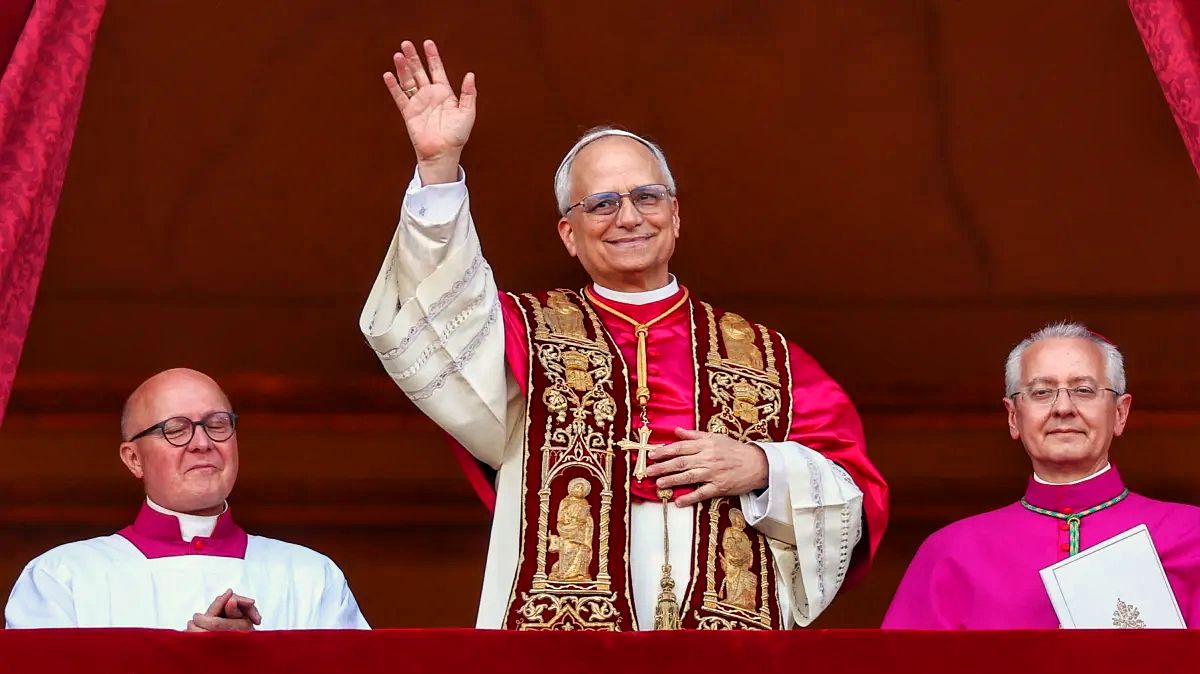Capra, Wise, Redford, Benigni — an American pope signals family-first hope as he opens a doorway between the Vatican and Hollywood.
3 Narratives News | · America/Vancouver
On a soft Roman afternoon, the new pope didn’t reach for Aquinas. He reached for cinema, naming four films that insist the human spirit can be repaired. Days before a rare audience with actors and directors at the Apostolic Palace, he offered a list that reads less like taste and more like an invitation.

What’s Happening and Why It Matters
Pope Leo XIV — the first American-born pontiff — shared four favorite films ahead of a Vatican gathering with Hollywood on Saturday, November 15, 2025. The titles: It’s a Wonderful Life (1946), The Sound of Music (1965), Ordinary People (1980), and Life Is Beautiful (1997). The Vatican’s culture office frames the meeting as part of the Holy Year, a dialogue with artists to “promote human values.” Major outlets have confirmed both the audience and the film list, with expected attendees including Cate Blanchett, Chris Pine, and Spike Lee.
Common mix-up, corrected: the father who shields his son from camp horrors is in Life Is Beautiful (La vita è bella), not Fellini’s La Dolce Vita.
Narrative 1 — The Believer in Ordinary Grace
Seen together, the picks sketch a catechism of consolation. Capra’s small-town redemption sermon says a life is measured by the neighbors who would miss you. Wise’s musical braids family courage with a gentle refusal of soft authoritarianism. Redford’s Ordinary People listens to suburban grief without contempt, suggesting that attention itself can be sacramental. And Benigni’s Life Is Beautiful wagers that a father’s imagination can make terror survivable for a child. The thread is unmistakable: salvation is domestic, embodied, and communal.
For Catholics who fear that “church and culture” has devolved into trench warfare, the accessibility of these choices is itself a gesture. A film list your grandmother loves and your teenager understands is a statement of audience: the pews and the plaza, together. The Vatican’s stated aim for the audience is not to bless a studio slate, but to renew a friendship between social teaching and the stories that loop in living rooms worldwide.
There is biography in the subtext. Leo XIV is a Chicagoan Augustinian; the moral populism of Capra and the family-first resolve of The Sound of Music fit a Midwestern vernacular. The choices also suggest a papacy keen to speak in stories people already know.
For background on how we weigh institutions and trust, see our explainer Legacy vs. Alternative Media — The Case for Two Truths, and browse our Categories Hub for more culture coverage.
Narrative 2 — The Critic of Safe Sentiment
To some film writers, the list is charming but tame. Where are the thorny provocations that formed earlier Catholic cinephiles? The flashpoint is Life Is Beautiful. Admirers defend its humanist intent; detractors argue its comic tone risks sentimentalizing the Shoah. One prominent critic praised the other three titles while urging readers to renounce Benigni’s film as “sinfully twee” and “queasy.” By this reading, sentiment has outpaced seriousness.
There is also an institutional benchmark: the Church’s own canon. In 1995, the Pontifical Council for Social Communications promoted “Some Important Films,” a list that included Rossellini’s Rome, Open City, Dreyer’s The Passion of Joan of Arc, and Spielberg’s Schindler’s List — works that refuse easy consolation. Against that yardstick, Leo XIV’s quartet looks more like an overture to conversation than a critical intervention.
Narrative 3 — The Silent Story: Cinema as Diplomacy
Beneath the debate sits a quieter truth: modern popes use screens as a language of statecraft. After Pope Francis’s death in April 2025 and Leo XIV’s election on May 8, the Vatican’s culture office leaned into “films of hope” for the Jubilee. In 2025, cinema at the Vatican is not decoration; it is a bridge between Rome and Los Angeles, doctrine and storytelling, grief and meaning. If Leo’s list feels unadventurous, that may be because an ambassador begins on common ground.
Watch what follows. If Saturday’s audience materializes, expect something durable: a recurring Vatican–Hollywood colloquy, residencies for filmmakers of conscience, and perhaps an updated companion to the 1995 list, written for a streaming generation. In that scenario, the four films named this week will be remembered as the downbeat to a longer score.
For a different look at power, infrastructure, and soft influence, read our feature Google Christmas Island — Infrastructure or Intelligence?
Key Takeaways
- Pope Leo XIV named It’s a Wonderful Life, The Sound of Music, Ordinary People, and Life Is Beautiful as four favorite films ahead of a Vatican audience with Hollywood on November 15, 2025.
- Supporters see a family-first moral compass and a renewed cultural friendship; critics call the list conventional and challenge Life Is Beautiful.
- The deeper story is diplomacy: the Holy See is using cinema to rebuild bridges and shape a values-first conversation with the industry.
Questions This Article Answers
- What four films did the pope name as favorites? It’s a Wonderful Life, The Sound of Music, Ordinary People, and Life Is Beautiful.
- Why is Life Is Beautiful controversial? Some critics argue its comic tone risks sentimentalizing the Holocaust, despite its humanist intent.
- How does this compare to the Vatican’s historic film list? The 1995 list leaned toward demanding arthouse works; Leo XIV’s quartet skews accessible and family-centred.
- What is the goal of the Hollywood audience? To deepen dialogue with filmmakers during the Holy Year and explore how creativity can serve human dignity.
- Why does the pope’s American background matter? It signals ease with popular idiom and a willingness to meet audiences where they already are.
Editor’s note on process: This article was reported and edited by humans. AI tools were used for organization and copyedits. All claims were verified against the linked sources. We correct mistakes quickly and transparently. See How We Use AI and our Corrections.
Sources
- Reuters — Pope Leo to host Hollywood figures; film list (Nov 10, 2025)
- The Guardian — Critic’s view of the four films (Nov 12, 2025)
- Variety — Audience details & attendees (Nov 11, 2025)
- Vatican News — Election of Pope Leo XIV (May 8, 2025)
- Associated Press — First American pope background (May 2025)
2025-11-12


